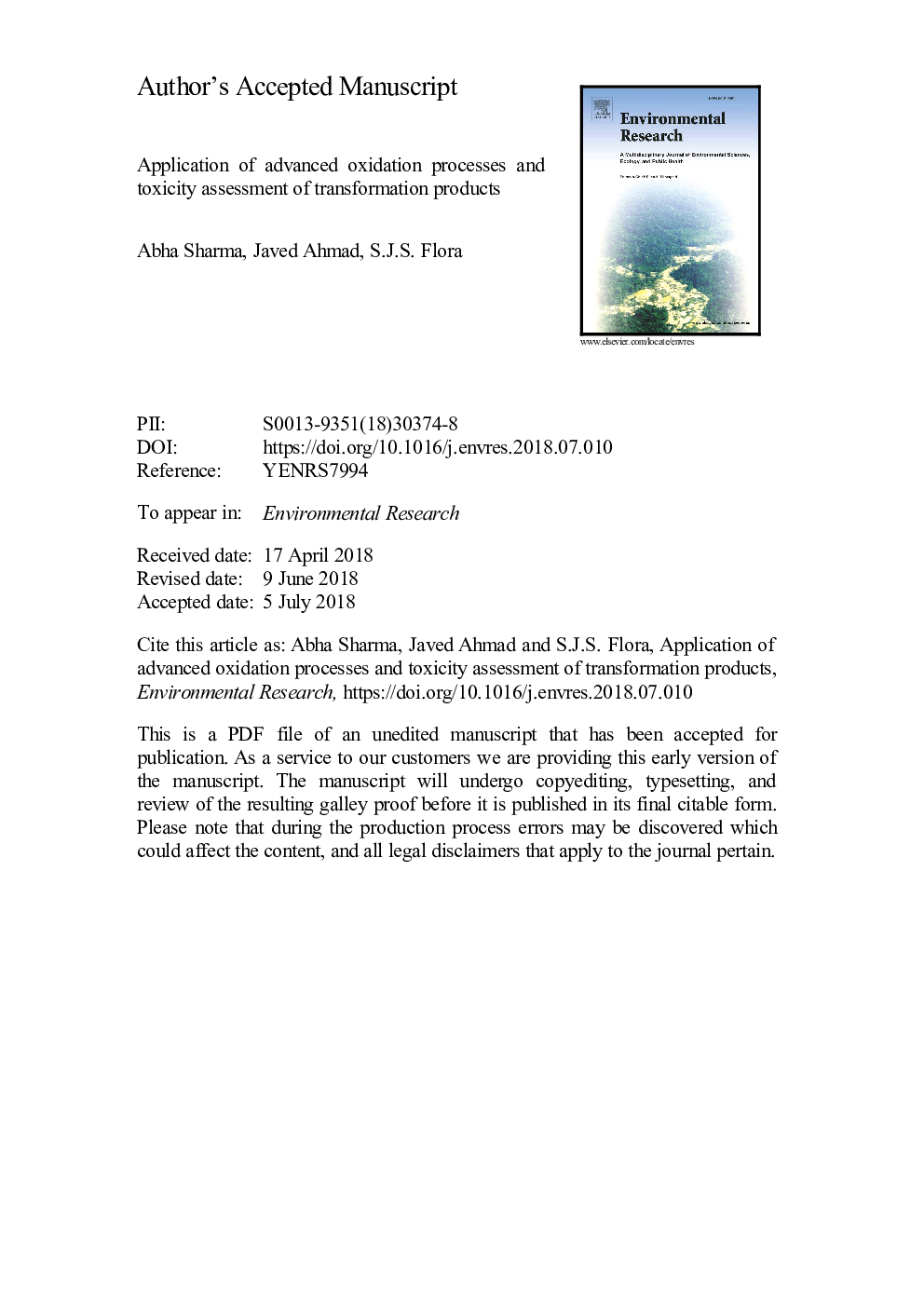| Article ID | Journal | Published Year | Pages | File Type |
|---|---|---|---|---|
| 8868800 | Environmental Research | 2018 | 36 Pages |
Abstract
AOPs cause loss of biological activity of the pollutant present in drinking water without generation of any toxicity. Conventional ozonation and AOPs can inactivate estrogenic compounds, antiviral compounds, antibiotics, and herbicides. However, the study of different AOPs methods for the treatment of drinking water has shown that oxidation of parent compound can also lead to the generation of a degradation/transformation product having biological activity/chemical toxicity similar to or different from the parent compound. Furthermore, an increased toxicity can also occur in AOPs treated drinking water. This review discusses various methods of AOPs, their merits, its application in drinking water treatment, the related issue of the evolution of toxicity in AOPs treated drinking water, biocatalyst, and analytical methods for identification of pollutants /transformed products and provides future directions to address such an issue.
Related Topics
Life Sciences
Environmental Science
Health, Toxicology and Mutagenesis
Authors
Abha Sharma, Javed Ahmad, S.J.S. Flora,
